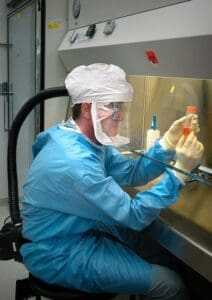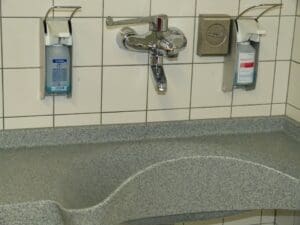Antiseptic wash products are a pivotal part of the healthcare industry. Due to the results of recent studies, the FDA is preparing to adopt new regulations for these products.
The main concern is that many active ingredients in antiseptics, which once were generally recognized as safe and/or effective by the 1994 Tentative Final Monograph, are not necessarily considered save anymore, due to the new standards for those classifications.
So, which products can be trusted after these new regulation come into effect?


It is important to note that the FDA maintains their recommendation to use antibacterial soap and water instead of antibacterial rubs when at all possible. Antiseptic washes and rubs are both undergoing clinical studies, but for different reasons. Due to advances in technology, the FDA wishes to properly gauge the amount of bacteria antiseptic washes eliminate. However, antiseptic rubs are being tested to assess their overall effectiveness as compared to washes. The new regulations will require these products to pass an approved benefit-to-risk ratio, which will assess the level of cleanliness an antiseptic wash provides versus its potential risk from systemic absorption, and its impact on the development of bacterial diseases.


It is safe to assume that the vast majority of modern antibacterial soaps will not be deemed unsafe for healthcare facilities, because their superiority to regular soap is well documented. Simply put, the benefits of antibacterial soaps far outweigh their risks. It is currently unclear if this is true for all antibacterial rubs however. There will be more information on these regulations when they are published in January of 2018. Healthcare facilities should be prepared to make any necessary changes to their current antiseptic products when that date arrives.
